Paddington, New South Wales on:
[Wikipedia]
[Google]
[Amazon]
Paddington is an upscale inner-city area of Sydney, in the state of
 ;1788–1800
In 1788 the First Fleet arrived in Sydney Harbour and established a settlement in Sydney Cove. Three kilometres to the east lay the land that would become Paddington. With a high sandstone ridge, eroded by streams leading to a marshy rush-filled cove too shallow for ships, the area was ignored by the newcomers, except for collecting rushes for thatch.
;1801–1840
On a path used by local Aboriginal people, a road of some form was built by Governor Hunter to South Head as early as 1803. Governor Macquarie upgraded the road in 1811 for strategic purposes to accommodate wheeled vehicles. The road was improved by Major Druitt in 1820 to give faster access to the signal station at South Head. It was also to give access to the salubrious villas built by the colony's emerging plutocracy. The road was renamed the Old South Head Road after construction of New South Head Road along the Harbour foreshore was begun in 1831.
The first land grant in the Paddington area, of 100 acres (40.4 hectares), was made to Robert Cooper, James Underwood, and Francis Ewen Forbes by Governor Brisbane in 1823, allowing them to commence work on the Sydney distillery at the eastern end of Glenmore Road. A mill was located at the end of Gordon Street and run by the Gordon family grinding wheat from the early 1830s. It remained a prominent feature of the local landscape as houses were built, and as wind power was replaced by steam.
Cooper built his mansion, Juniper Hall, on the South Head Road ridge while Underwood built his house on Glenmore Road, between today's Soudan Lane and the former distillery. The suburb's name came about when in October 1839 James Underwood subdivided 50 of his 97 acres. He called his subdivision the Paddington Estate after the London Borough of that name. It extended from Oxford Street down to present day Paddington Street.
1841–1900
;1788–1800
In 1788 the First Fleet arrived in Sydney Harbour and established a settlement in Sydney Cove. Three kilometres to the east lay the land that would become Paddington. With a high sandstone ridge, eroded by streams leading to a marshy rush-filled cove too shallow for ships, the area was ignored by the newcomers, except for collecting rushes for thatch.
;1801–1840
On a path used by local Aboriginal people, a road of some form was built by Governor Hunter to South Head as early as 1803. Governor Macquarie upgraded the road in 1811 for strategic purposes to accommodate wheeled vehicles. The road was improved by Major Druitt in 1820 to give faster access to the signal station at South Head. It was also to give access to the salubrious villas built by the colony's emerging plutocracy. The road was renamed the Old South Head Road after construction of New South Head Road along the Harbour foreshore was begun in 1831.
The first land grant in the Paddington area, of 100 acres (40.4 hectares), was made to Robert Cooper, James Underwood, and Francis Ewen Forbes by Governor Brisbane in 1823, allowing them to commence work on the Sydney distillery at the eastern end of Glenmore Road. A mill was located at the end of Gordon Street and run by the Gordon family grinding wheat from the early 1830s. It remained a prominent feature of the local landscape as houses were built, and as wind power was replaced by steam.
Cooper built his mansion, Juniper Hall, on the South Head Road ridge while Underwood built his house on Glenmore Road, between today's Soudan Lane and the former distillery. The suburb's name came about when in October 1839 James Underwood subdivided 50 of his 97 acres. He called his subdivision the Paddington Estate after the London Borough of that name. It extended from Oxford Street down to present day Paddington Street.
1841–1900
 After the commencement in 1841 of Victoria Barracks the village of Paddington soon emerged, much of it around the cottages of the many artisans –stonemasons, quarrymen, carpenters and labourers – who were working on the construction of the Barracks. What emerged was a clear class distinction; the working-class located largely on or near the South Head Road and the emerging gentry living in villas facing the harbour in 'Rushcutters Valley'.
Rapid growth followed, with large estates being subdivided for speculative terrace style housing. In 1862 there were 535 houses with 2,800 residents. By 1883 the number of houses increased to 2,347. In 1871 Paddington's population density was 10.2 people per acre. By 1891 it had jumped 44.1.Andrew Starr & Janet Morice, Paddington Stories Published by Andrew Starr & Associates. Australia, 2000
;1901–2000
In the first decade of the twentieth century Paddington was in its prime, with the population reaching 26,000 living in 4,800 houses. General health improved with the area being sewered.
The
After the commencement in 1841 of Victoria Barracks the village of Paddington soon emerged, much of it around the cottages of the many artisans –stonemasons, quarrymen, carpenters and labourers – who were working on the construction of the Barracks. What emerged was a clear class distinction; the working-class located largely on or near the South Head Road and the emerging gentry living in villas facing the harbour in 'Rushcutters Valley'.
Rapid growth followed, with large estates being subdivided for speculative terrace style housing. In 1862 there were 535 houses with 2,800 residents. By 1883 the number of houses increased to 2,347. In 1871 Paddington's population density was 10.2 people per acre. By 1891 it had jumped 44.1.Andrew Starr & Janet Morice, Paddington Stories Published by Andrew Starr & Associates. Australia, 2000
;1901–2000
In the first decade of the twentieth century Paddington was in its prime, with the population reaching 26,000 living in 4,800 houses. General health improved with the area being sewered.
The
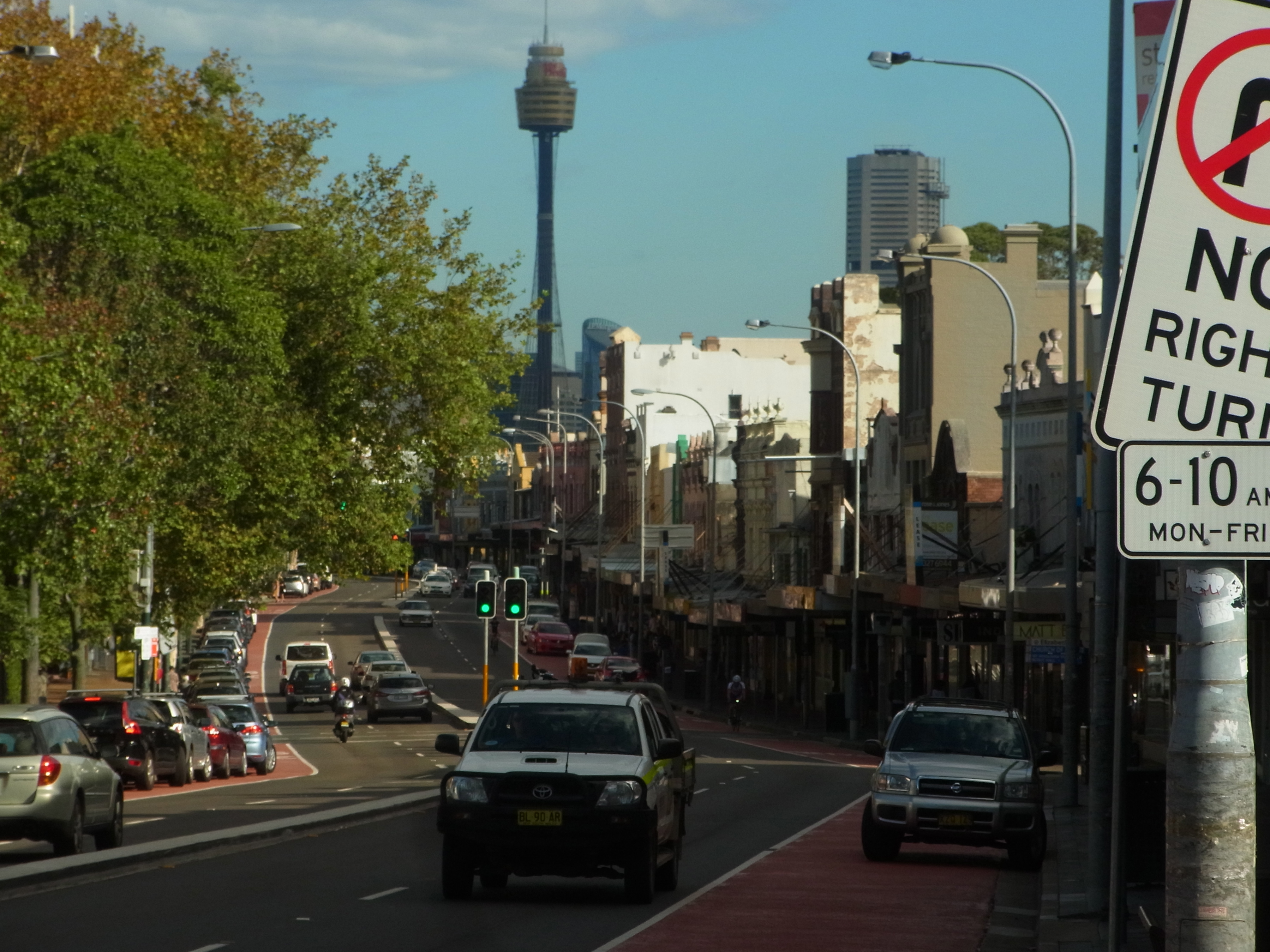 Commercial activity in Paddington is diverse and can be divided into a number of precincts:
Commercial activity in Paddington is diverse and can be divided into a number of precincts:
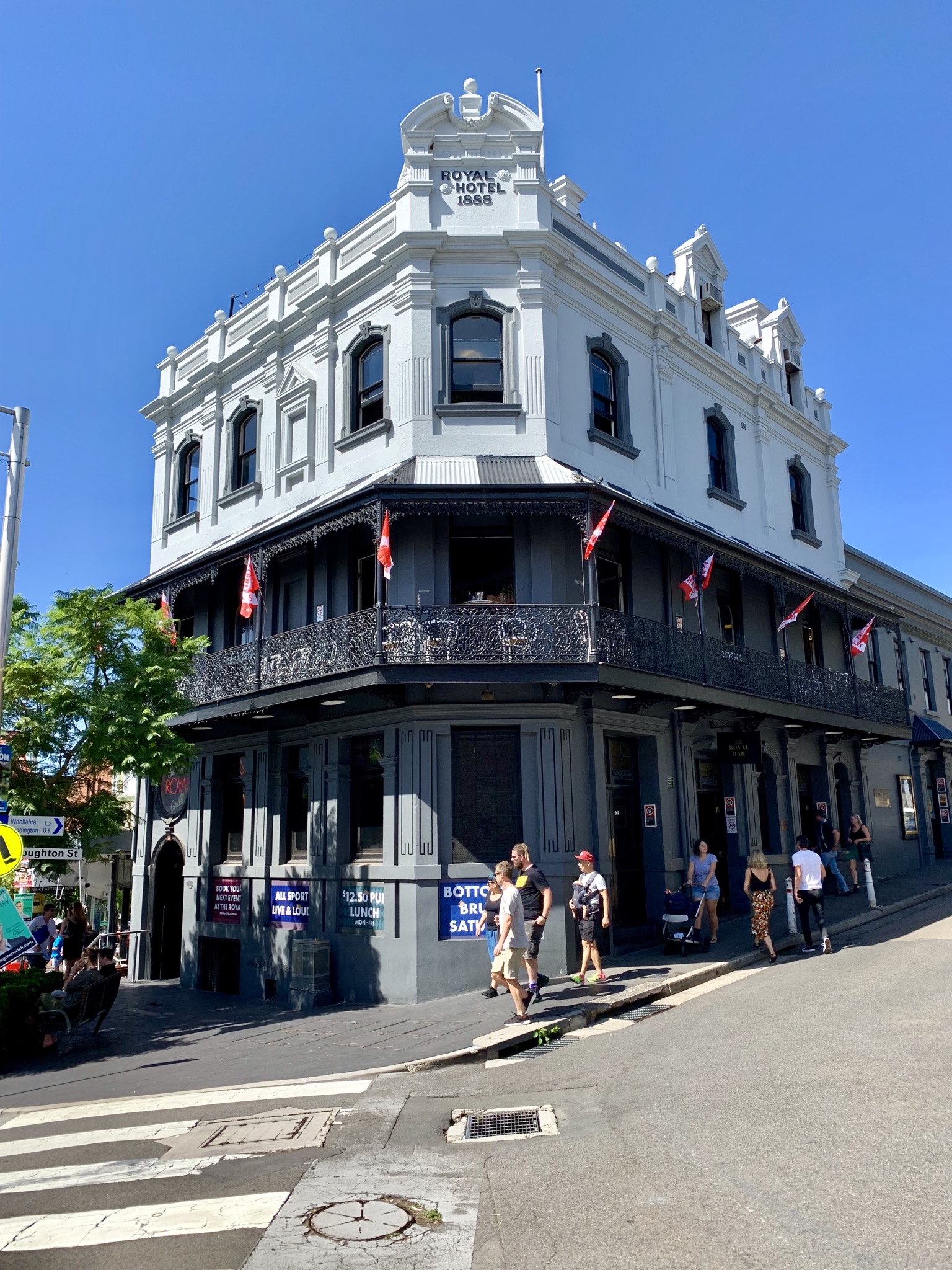

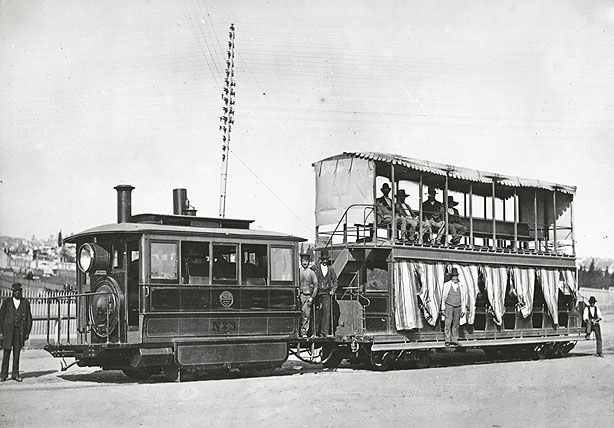
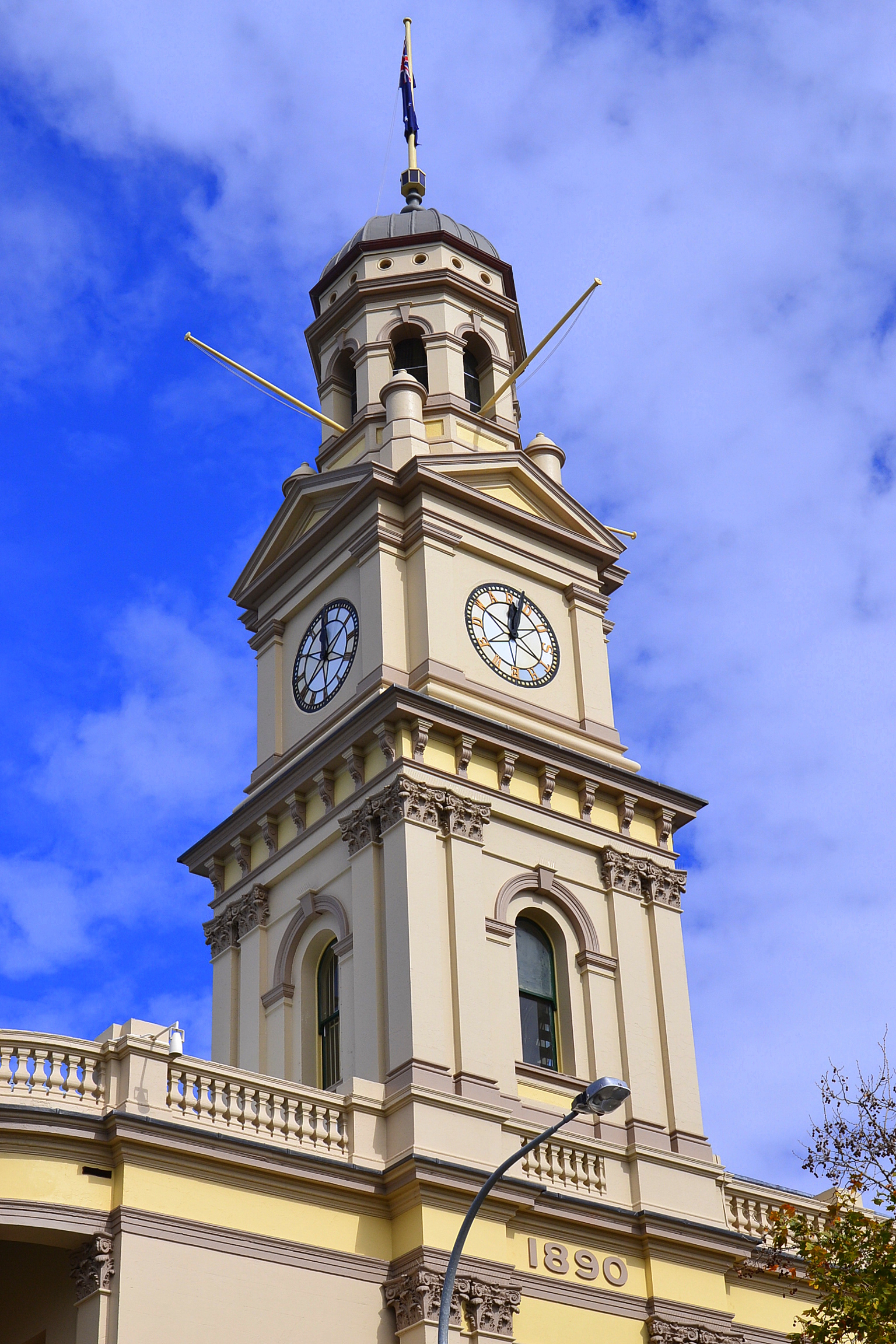
 The Sydney Cricket Ground (SCG) can be accessed from Moore Park Road on Paddington's southern border. The first test match to be played at the SCG was in February 1882. The SCG is the home ground of the Sydney Swans Australian Rules Football club. Public tours are available every day except Sundays.
The Sydney Cricket Ground (SCG) can be accessed from Moore Park Road on Paddington's southern border. The first test match to be played at the SCG was in February 1882. The SCG is the home ground of the Sydney Swans Australian Rules Football club. Public tours are available every day except Sundays.
 Juniper Hall was built by Robert Cooper, an ex-convict, in the 1820s and is the oldest house in Paddington. It is a large, dominating structure located diagonally opposite the Paddington Town Hall. It underwent significant restoration when owned by the National Trust of Australia. In 2013 the building was sold to the Moran family for the Moran Arts Foundation for exhibitions and events.
Juniper Hall was built by Robert Cooper, an ex-convict, in the 1820s and is the oldest house in Paddington. It is a large, dominating structure located diagonally opposite the Paddington Town Hall. It underwent significant restoration when owned by the National Trust of Australia. In 2013 the building was sold to the Moran family for the Moran Arts Foundation for exhibitions and events.
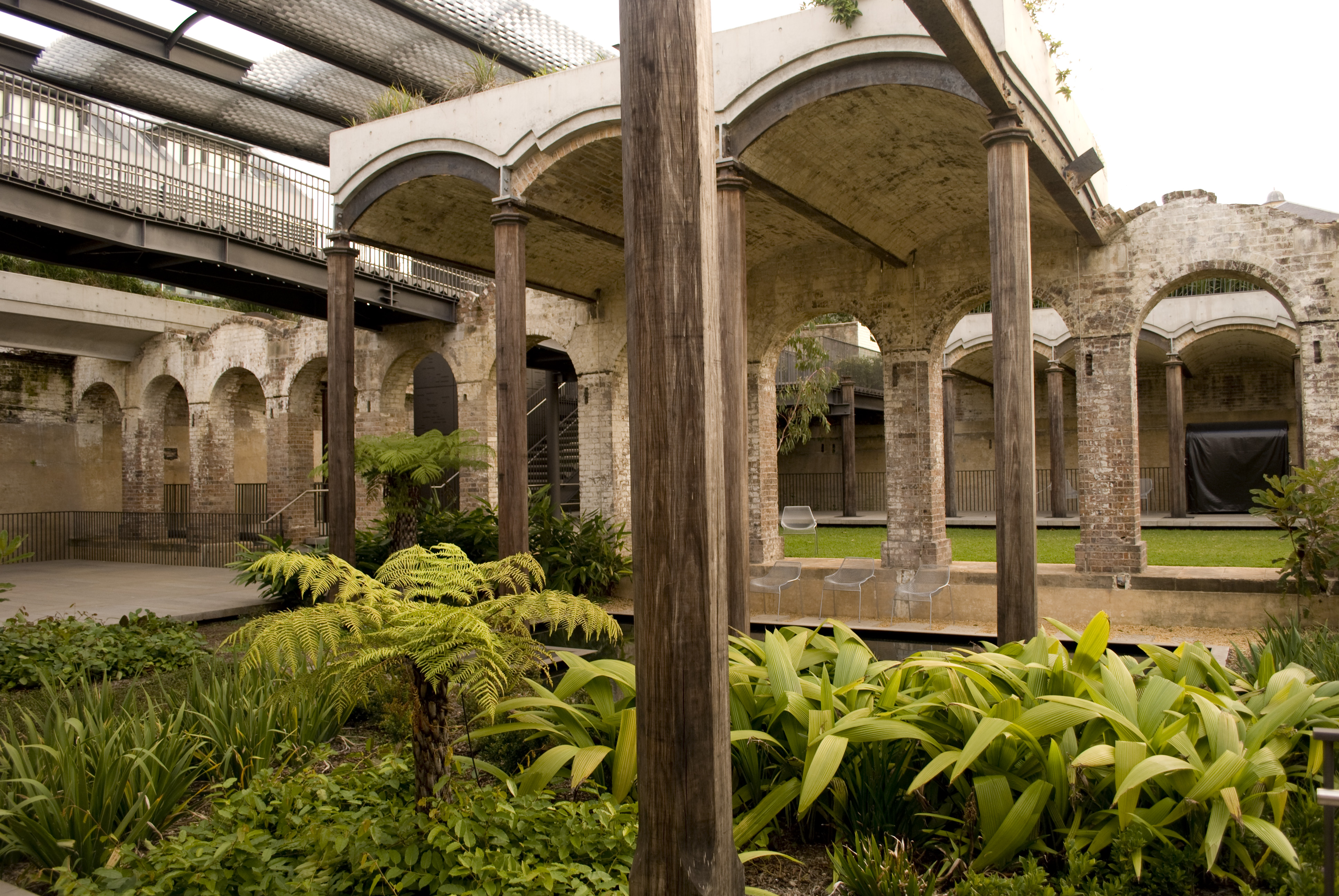 The Paddington Reservoir in Oxford Street provided water to parts of Sydney between 1866 and 1899. In 2006 the remnants of the reservoir's vaulted construction were preserved with a sunken garden known as the Paddington Reservoir Gardens or Walter Read Reserve.
The Paddington Reservoir in Oxford Street provided water to parts of Sydney between 1866 and 1899. In 2006 the remnants of the reservoir's vaulted construction were preserved with a sunken garden known as the Paddington Reservoir Gardens or Walter Read Reserve.
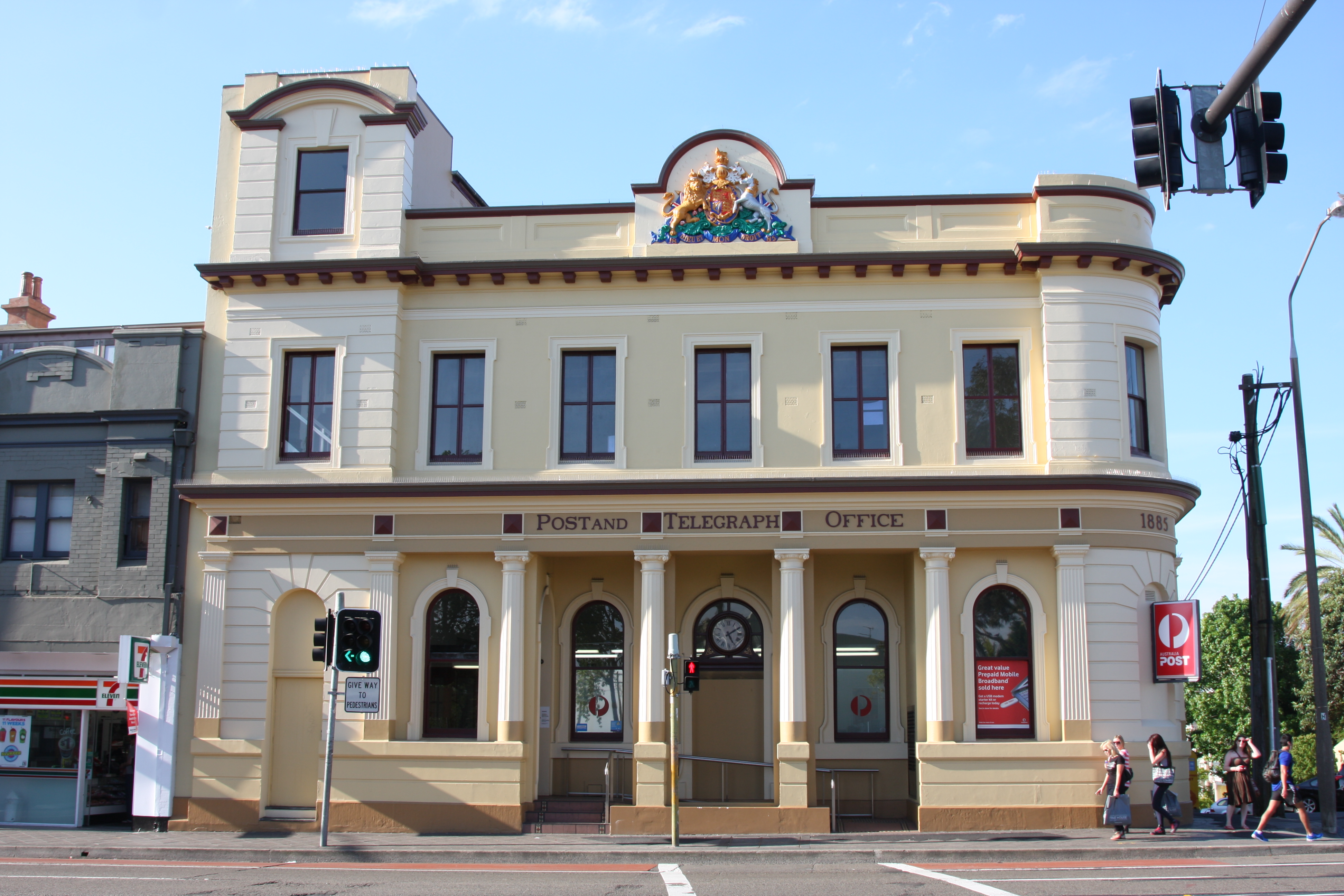 Paddington has a number of heritage-listed sites, including the following sites listed on the
Paddington has a number of heritage-listed sites, including the following sites listed on the
 Places of worship in Paddington include:
* Paddington Church of Christ, Paddington Street
* Paddington Uniting Church, Oxford Street
* St Francis of Assisi Catholic Church, Oxford Street
* St Matthais Anglican Church, Oxford Street
* St Georges Anglican Church, Five Ways
* St Sophia's Greek Orthodox Cathedral, Cnr of South Dowling Street and Napier Street
Places of worship in Paddington include:
* Paddington Church of Christ, Paddington Street
* Paddington Uniting Church, Oxford Street
* St Francis of Assisi Catholic Church, Oxford Street
* St Matthais Anglican Church, Oxford Street
* St Georges Anglican Church, Five Ways
* St Sophia's Greek Orthodox Cathedral, Cnr of South Dowling Street and Napier Street
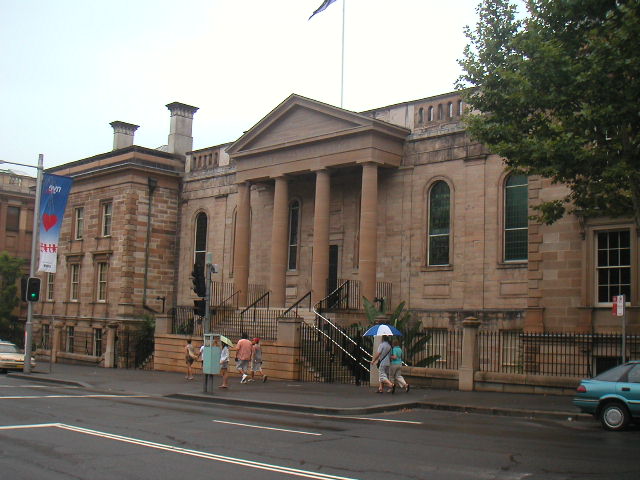 Pre-school;
* KU Peter Pan Paddington Preschool, Union Street.
* KU Kira Child Care Centre, Cnr Moore Park Road and Oatley Road.
* Paddington Church of Christ Kindergarten, Paddington Street.
* Paddington Children's Centre, Paddington Uniting Church, Oxford Street.
* SDN Paddington, Heeley Street.
Primary;
* Glenmore Road Public School, Glenmore Road and Cambridge Street.
* Paddington Public School, Oxford Street.
* St Francis of Assisi School, Oxford Street.
* Sydney Grammar School (Edgecliff Preparatory School) Alma Street.
Secondary;
* Nil.
Pre-school;
* KU Peter Pan Paddington Preschool, Union Street.
* KU Kira Child Care Centre, Cnr Moore Park Road and Oatley Road.
* Paddington Church of Christ Kindergarten, Paddington Street.
* Paddington Children's Centre, Paddington Uniting Church, Oxford Street.
* SDN Paddington, Heeley Street.
Primary;
* Glenmore Road Public School, Glenmore Road and Cambridge Street.
* Paddington Public School, Oxford Street.
* St Francis of Assisi School, Oxford Street.
* Sydney Grammar School (Edgecliff Preparatory School) Alma Street.
Secondary;
* Nil.

 Community Groups
* Paddington-Darlinghurst Community Working Group
* The Paddington Society, a community action group
* Paddington Woollahra RSL Club, 220-232 Oxford Street
* Paddington Woollahra Youth Service (1975–1990)
Sport
* Maccabi Tennis White City, Alma Street
* Paddington Lawn Bowls Club, Quarry Road
* The Palms Tennis Centre, Quarry Road
*
Community Groups
* Paddington-Darlinghurst Community Working Group
* The Paddington Society, a community action group
* Paddington Woollahra RSL Club, 220-232 Oxford Street
* Paddington Woollahra Youth Service (1975–1990)
Sport
* Maccabi Tennis White City, Alma Street
* Paddington Lawn Bowls Club, Quarry Road
* The Palms Tennis Centre, Quarry Road
*
 Numerous private art galleries are a feature of Paddington. They include:
* Art House Gallery, 66 Mclachlan Avenue.
* Australian Galleries, 15 Roylston Street.
* Blender Gallery, 16 Elizabeth Street.
* Christopher Day Galleries, Cnr Elizabeth & Windsor Streets.
* Martin Browne Contemporary, 15 Hampton Street.
* Maunsell Wickes at Barry Stern Galleries, Glenmore Road.
* Moran Arts Foundation, Juniper Hall 250 Oxford Street.
* Roslyn Oxley 9 Gallery, 8 Soudan Lane.
* Sabbia Gallery, 120 Glenmore Road.
* Savill Galleries, 156 Hargrave Street.
* Sherman Contemporary Art Foundation, 16 Goodhope Street.
* Wagner Art Gallery, 39 Gurner Street.
Non private galleries:
* Australian Centre for Photography, 257 Oxford Street (since moved to 72 Oxford Street, Darlinghurst).
* Galleries UNSW, COFA, corner of Oxford Street and Greens Road.A gallery of the College of Fine Arts (COFA)
* Kudos Gallery, 6 Napier Street.
Numerous private art galleries are a feature of Paddington. They include:
* Art House Gallery, 66 Mclachlan Avenue.
* Australian Galleries, 15 Roylston Street.
* Blender Gallery, 16 Elizabeth Street.
* Christopher Day Galleries, Cnr Elizabeth & Windsor Streets.
* Martin Browne Contemporary, 15 Hampton Street.
* Maunsell Wickes at Barry Stern Galleries, Glenmore Road.
* Moran Arts Foundation, Juniper Hall 250 Oxford Street.
* Roslyn Oxley 9 Gallery, 8 Soudan Lane.
* Sabbia Gallery, 120 Glenmore Road.
* Savill Galleries, 156 Hargrave Street.
* Sherman Contemporary Art Foundation, 16 Goodhope Street.
* Wagner Art Gallery, 39 Gurner Street.
Non private galleries:
* Australian Centre for Photography, 257 Oxford Street (since moved to 72 Oxford Street, Darlinghurst).
* Galleries UNSW, COFA, corner of Oxford Street and Greens Road.A gallery of the College of Fine Arts (COFA)
* Kudos Gallery, 6 Napier Street.
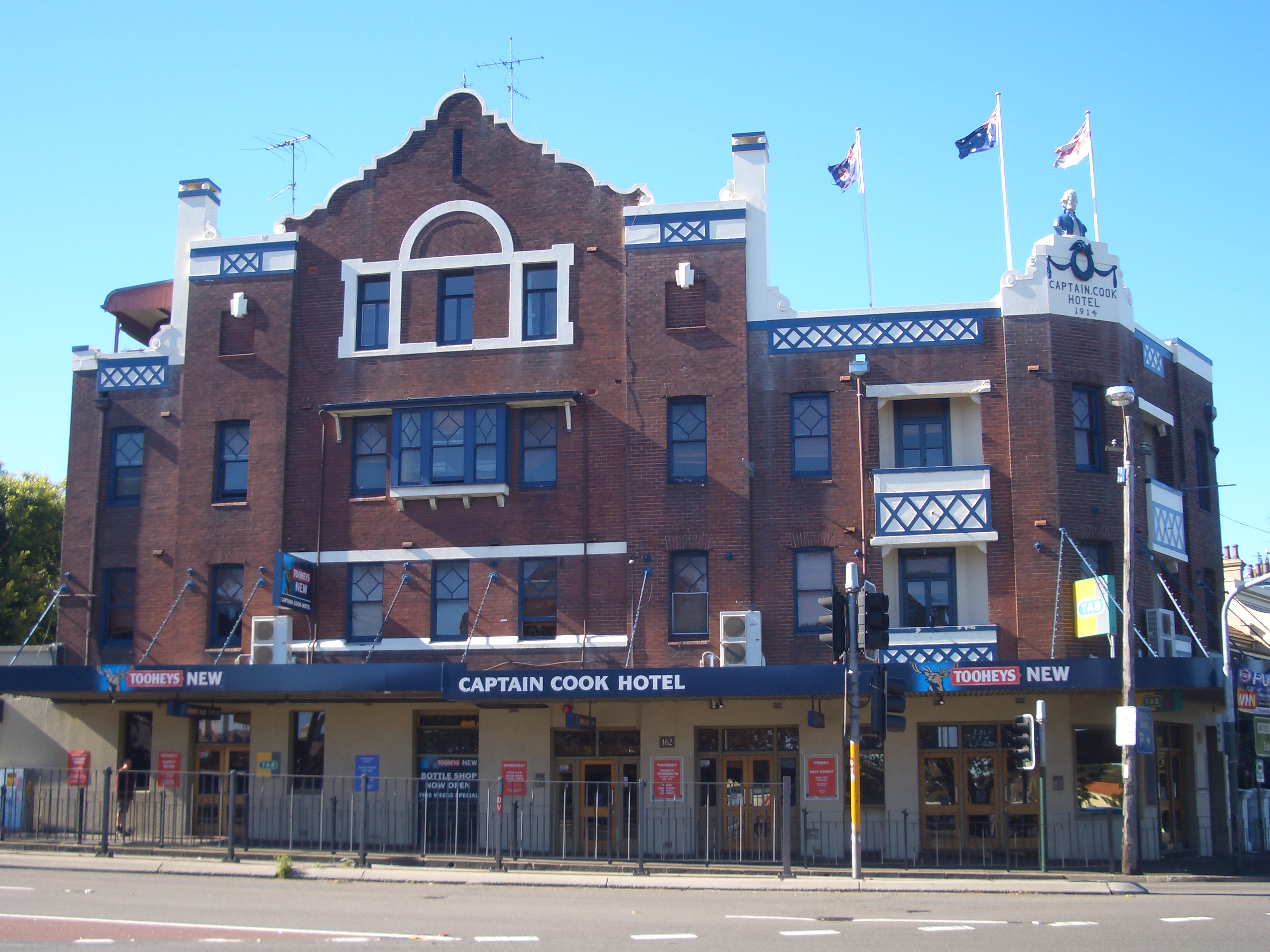
 Paddington has a notoriously high number of hotels (only a few offer accommodation)
* Arts Hotel, 21 Oxford Street.
* Bellevue Hotel, 159 Hargrave Street.
* Captain Cook Hotel, 162 Flinders Street.
* Four in Hand Hotel, 105 Sutherland street.
* Grand National, 161 Underwood Street.
* Imperial Hotel, 252 Oxford Street.
* London Hotel, 85 Underwood Street.
* Lord Dudley, 236 Jersey Road.
* Olympic Hotel, 308 Moore Park Road.
* Paddington Arms Hotel 384 Oxford Street.
* Paddington Inn Hotel, 338 Oxford Street.
* Rose, Shamrock and Thistle, 27-30 Oxford Street.
* Royal Hotel, 237 Glenmore Road, Five Ways.
* The Light Brigade Hotel, 2A Oxford Street (Woollahra).
* The Village Inn, 9-11 Glenmore Road.
* Unicorn Hotel, 106 Oxford Street.
Paddington has a notoriously high number of hotels (only a few offer accommodation)
* Arts Hotel, 21 Oxford Street.
* Bellevue Hotel, 159 Hargrave Street.
* Captain Cook Hotel, 162 Flinders Street.
* Four in Hand Hotel, 105 Sutherland street.
* Grand National, 161 Underwood Street.
* Imperial Hotel, 252 Oxford Street.
* London Hotel, 85 Underwood Street.
* Lord Dudley, 236 Jersey Road.
* Olympic Hotel, 308 Moore Park Road.
* Paddington Arms Hotel 384 Oxford Street.
* Paddington Inn Hotel, 338 Oxford Street.
* Rose, Shamrock and Thistle, 27-30 Oxford Street.
* Royal Hotel, 237 Glenmore Road, Five Ways.
* The Light Brigade Hotel, 2A Oxford Street (Woollahra).
* The Village Inn, 9-11 Glenmore Road.
* Unicorn Hotel, 106 Oxford Street.
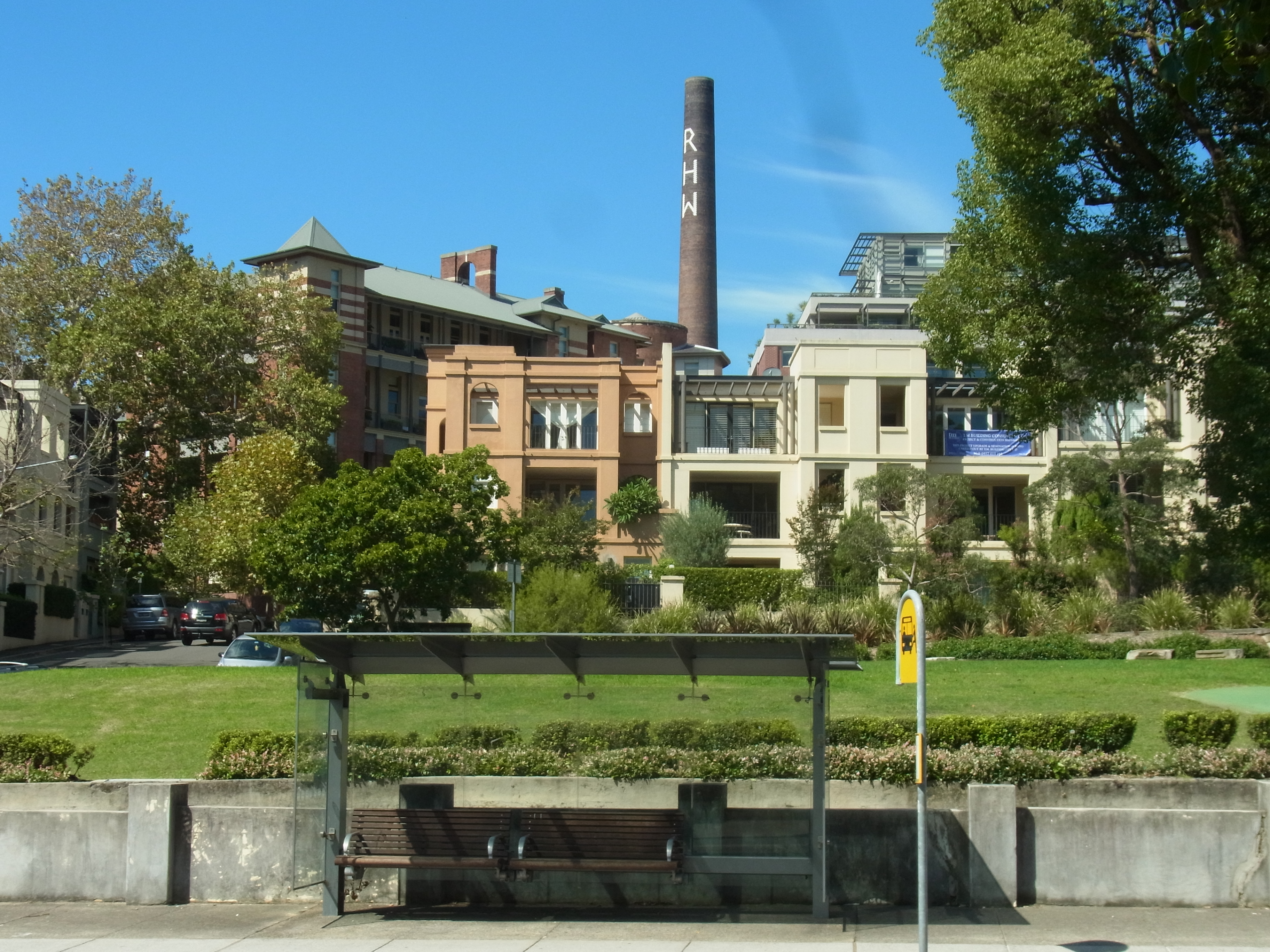 Royal Hospital for Women (RHW)
The Benevolent Society of NSW officially opened the Royal Hospital for Women in Glenmore Road on 3 May 1905. The hospital remained at the site for almost 100 years, providing health care for thousands of women and their babies. In 1997 the hospital moved to Randwick, and the Paddington site was sold and developed for housing, known as Paddington Green.
Scottish Hospital
The Scottish Hospital in Cooper Street includes the gardens and original house 'The Terraces', one of the ten Gentry Villa subdivisions granted by
Governor Bourke in the 1830s. In 2010 Presbyterian Aged Care NSW & ACT (PAC) advanced plans for the rejuvenation and expansion of aged care services available from the Scottish Hospital Site, Paddington.
Royal Hospital for Women (RHW)
The Benevolent Society of NSW officially opened the Royal Hospital for Women in Glenmore Road on 3 May 1905. The hospital remained at the site for almost 100 years, providing health care for thousands of women and their babies. In 1997 the hospital moved to Randwick, and the Paddington site was sold and developed for housing, known as Paddington Green.
Scottish Hospital
The Scottish Hospital in Cooper Street includes the gardens and original house 'The Terraces', one of the ten Gentry Villa subdivisions granted by
Governor Bourke in the 1830s. In 2010 Presbyterian Aged Care NSW & ACT (PAC) advanced plans for the rejuvenation and expansion of aged care services available from the Scottish Hospital Site, Paddington.
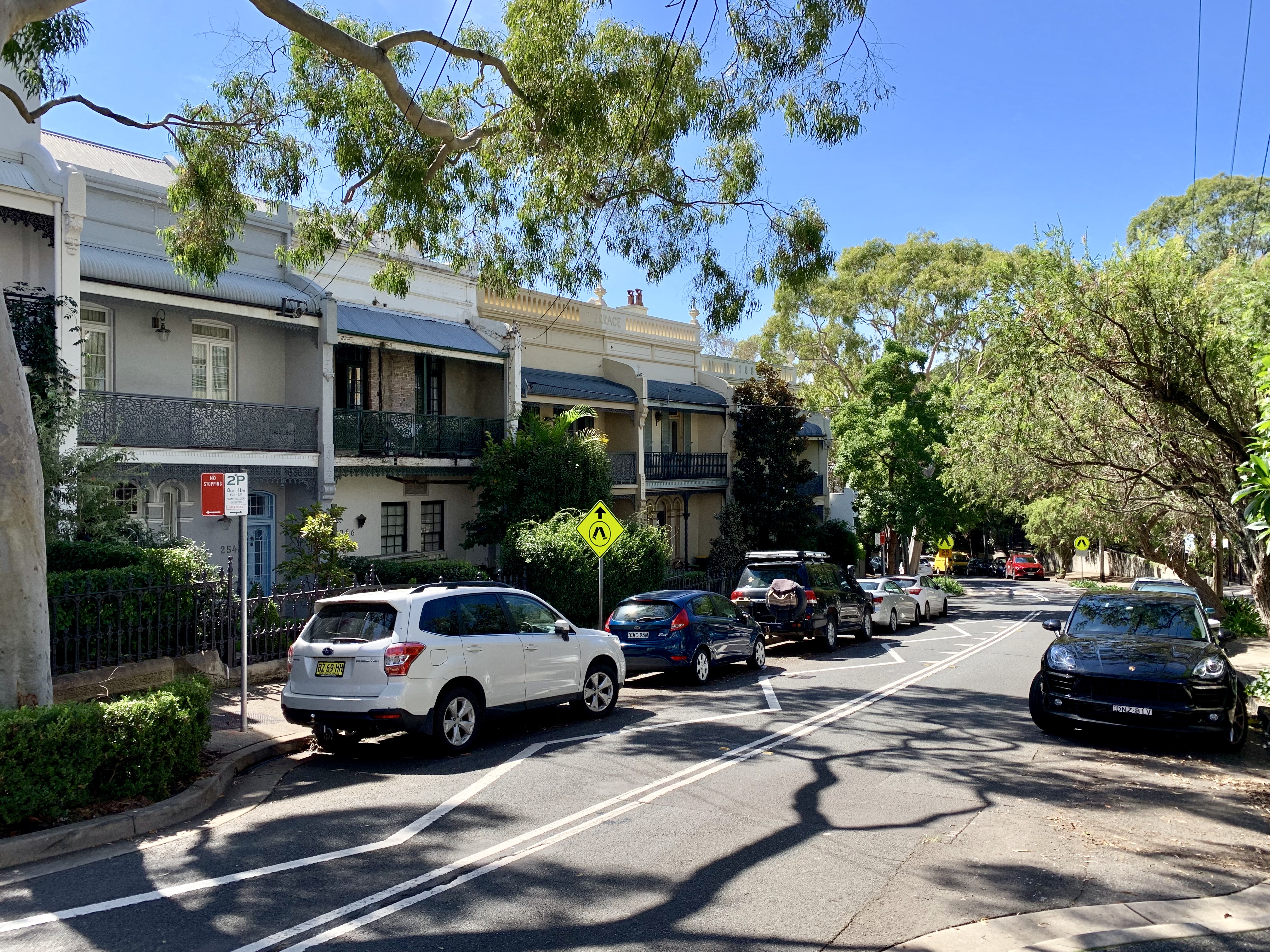

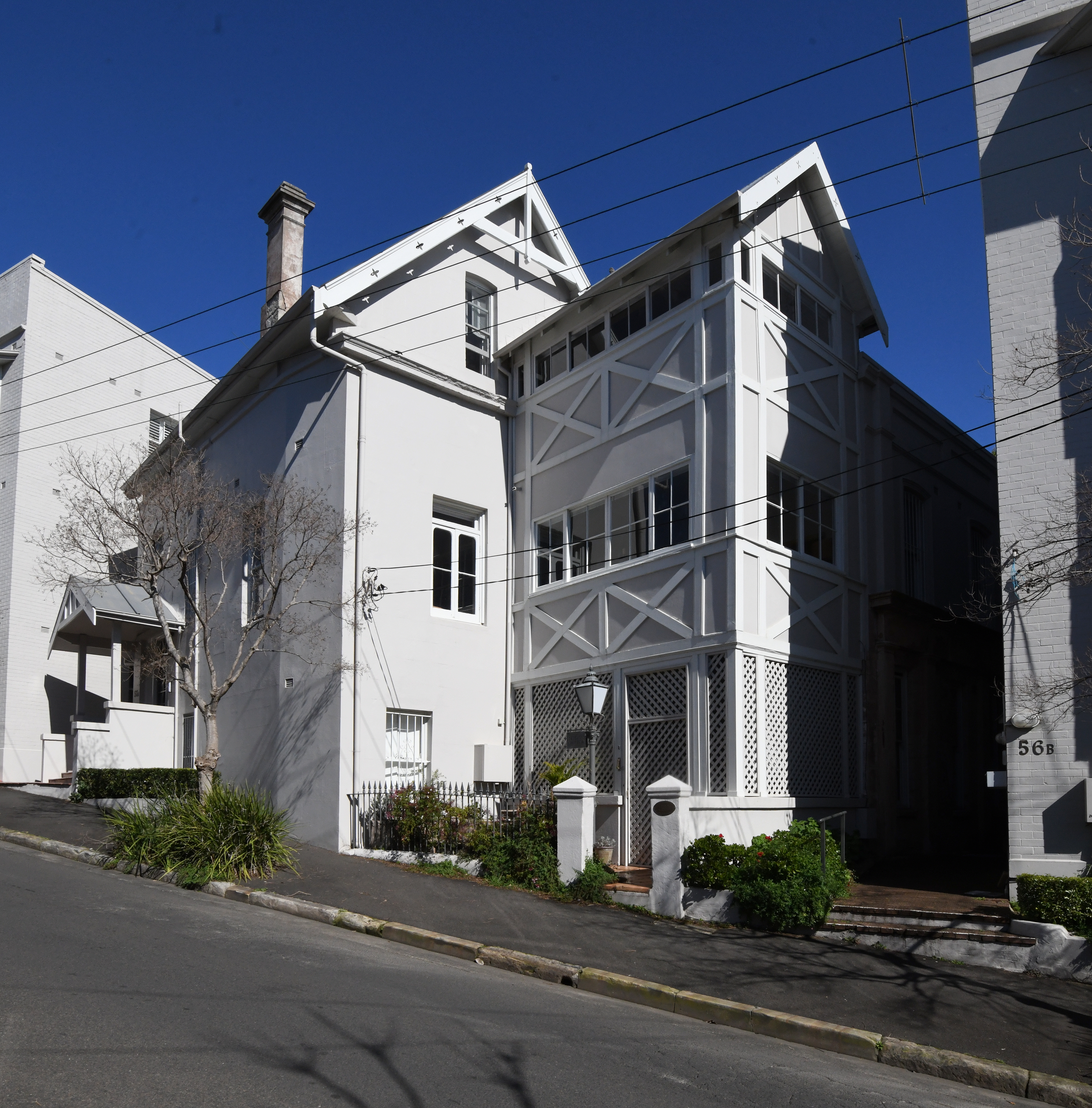
Army Museum of New South Wales
Australian Centre for Photography
COFA, College of Fine Arts, UNSW
Paddington Markets
Paddo RSL
The Paddington Society
Urban Walkabout Guide for Paddington
William Street
* Murder Society {{Authority control Gay villages in Australia Suburbs of Sydney
New South Wales
)
, nickname =
, image_map = New South Wales in Australia.svg
, map_caption = Location of New South Wales in AustraliaCoordinates:
, subdivision_type = Country
, subdivision_name = Australia
, established_title = Before federation
, es ...
, Australia. Located east of the Sydney central business district, Paddington lies across two local government areas. The portion south of Oxford Street
Oxford Street is a major road in the City of Westminster in the West End of London, running from Tottenham Court Road to Marble Arch via Oxford Circus. It is Europe's busiest shopping street, with around half a million daily visitors, and ...
lies within the City of Sydney
The City of Sydney is the local government area covering the Sydney central business district and surrounding inner city suburbs of the greater metropolitan area of Sydney, New South Wales, Australia. Established by Act of Parliament in 1842, th ...
, while the portion north of Oxford Street lies within the Municipality of Woollahra. It is often colloquially referred to as "Paddo".
Paddington is bordered to the west by Darlinghurst
Darlinghurst is an inner-city, eastern suburb of Sydney, New South Wales, Australia. Darlinghurst is located immediately east of the Sydney central business district (CBD) and Hyde Park, within the local government area of the City of Sydney. ...
, to the east by Centennial Park and Woollahra
Woollahra is a suburb in the Eastern Suburbs of Sydney, in the state of New South Wales, Australia. Woollahra is located 5 kilometres east of the Sydney central business district, in the local government area of the Municipality of Woolla ...
, to the north by Edgecliff and Rushcutters Bay
Rushcutters Bay is a harbourside eastern suburb of Sydney, in the state of New South Wales, Australia 3 kilometres east of the Sydney central business district, in the local government area of the City of Sydney.
The suburb of Rushcutters ...
and to the south by Moore Park.
History
Aboriginal people
The suburb of Paddington is considered to be part of the region associated with the stories of theCadigal
The Cadigal, also spelled as Gadigal and Caddiegal, are a group of Indigenous people whose traditional lands are located in Gadi, on Eora country, the location of Sydney, New South Wales, Australia.
The Gadigal originally inhabited the area t ...
people. These people belonged to the Dharug
The Dharug or Darug people, formerly known as the Broken Bay tribe, are an Aboriginal Australian people, who share strong ties of kinship and, in pre-colonial times, lived as skilled hunters in family groups or clans, scattered throughout much ...
(or Eora) language group, which includes what is now known as the Sydney central business district. It is known that the ridge, being the most efficient route, on which Oxford Street was built was also a walking track used by Aboriginal people. Much of the Aboriginal population (estimated at the time to be ca. 1000 people) of Sydney died due to the smallpox
Smallpox was an infectious disease caused by variola virus (often called smallpox virus) which belongs to the genus Orthopoxvirus. The last naturally occurring case was diagnosed in October 1977, and the World Health Organization (WHO) c ...
outbreak of 1789, one year after the First Fleet arrived in Sydney. Some Anthropologists maintain that the tribe moved to other areas of the shared Eora language group. At the time when Robert Cooper began to build his first house in Paddington, approximately 200 Koori
Koori (also spelt koorie, goori or goorie) is a demonym for Aboriginal Australians from a region that approximately corresponds to southern New South Wales and Victoria. The word derives from the Indigenous language Awabakal. For some people ...
people were living in Woolloomooloo
Woolloomooloo ( ) is a harbourside, inner-city eastern suburb of Sydney, New South Wales, Australia. Woolloomooloo is 1.5 kilometres east of the Sydney central business district, in the local government area of the City of Sydney. It is in a lo ...
in housing which Governor Macquarie
Major General Lachlan Macquarie, CB (; gd, Lachann MacGuaire; 31 January 1762 – 1 July 1824) was a British Army officer and colonial administrator from Scotland. Macquarie served as the fifth Governor of New South Wales from 1810 to 1821, an ...
had built for them.
Post European settlement, Paddington has generally not been a suburb with a dense Indigenous population. In the 1930s, when parts of Sydney such as Redfern and Glebe
Glebe (; also known as church furlong, rectory manor or parson's close(s))McGurk 1970, p. 17 is an area of land within an ecclesiastical parish used to support a parish priest. The land may be owned by the church, or its profits may be reserved ...
became hubs for Aboriginal people entering the labour force, Paddington continued to be a suburb mostly inhabited by European working-class people.
European settlement
 ;1788–1800
In 1788 the First Fleet arrived in Sydney Harbour and established a settlement in Sydney Cove. Three kilometres to the east lay the land that would become Paddington. With a high sandstone ridge, eroded by streams leading to a marshy rush-filled cove too shallow for ships, the area was ignored by the newcomers, except for collecting rushes for thatch.
;1801–1840
On a path used by local Aboriginal people, a road of some form was built by Governor Hunter to South Head as early as 1803. Governor Macquarie upgraded the road in 1811 for strategic purposes to accommodate wheeled vehicles. The road was improved by Major Druitt in 1820 to give faster access to the signal station at South Head. It was also to give access to the salubrious villas built by the colony's emerging plutocracy. The road was renamed the Old South Head Road after construction of New South Head Road along the Harbour foreshore was begun in 1831.
The first land grant in the Paddington area, of 100 acres (40.4 hectares), was made to Robert Cooper, James Underwood, and Francis Ewen Forbes by Governor Brisbane in 1823, allowing them to commence work on the Sydney distillery at the eastern end of Glenmore Road. A mill was located at the end of Gordon Street and run by the Gordon family grinding wheat from the early 1830s. It remained a prominent feature of the local landscape as houses were built, and as wind power was replaced by steam.
Cooper built his mansion, Juniper Hall, on the South Head Road ridge while Underwood built his house on Glenmore Road, between today's Soudan Lane and the former distillery. The suburb's name came about when in October 1839 James Underwood subdivided 50 of his 97 acres. He called his subdivision the Paddington Estate after the London Borough of that name. It extended from Oxford Street down to present day Paddington Street.
1841–1900
;1788–1800
In 1788 the First Fleet arrived in Sydney Harbour and established a settlement in Sydney Cove. Three kilometres to the east lay the land that would become Paddington. With a high sandstone ridge, eroded by streams leading to a marshy rush-filled cove too shallow for ships, the area was ignored by the newcomers, except for collecting rushes for thatch.
;1801–1840
On a path used by local Aboriginal people, a road of some form was built by Governor Hunter to South Head as early as 1803. Governor Macquarie upgraded the road in 1811 for strategic purposes to accommodate wheeled vehicles. The road was improved by Major Druitt in 1820 to give faster access to the signal station at South Head. It was also to give access to the salubrious villas built by the colony's emerging plutocracy. The road was renamed the Old South Head Road after construction of New South Head Road along the Harbour foreshore was begun in 1831.
The first land grant in the Paddington area, of 100 acres (40.4 hectares), was made to Robert Cooper, James Underwood, and Francis Ewen Forbes by Governor Brisbane in 1823, allowing them to commence work on the Sydney distillery at the eastern end of Glenmore Road. A mill was located at the end of Gordon Street and run by the Gordon family grinding wheat from the early 1830s. It remained a prominent feature of the local landscape as houses were built, and as wind power was replaced by steam.
Cooper built his mansion, Juniper Hall, on the South Head Road ridge while Underwood built his house on Glenmore Road, between today's Soudan Lane and the former distillery. The suburb's name came about when in October 1839 James Underwood subdivided 50 of his 97 acres. He called his subdivision the Paddington Estate after the London Borough of that name. It extended from Oxford Street down to present day Paddington Street.
1841–1900
World War I
World War I (28 July 1914 11 November 1918), often abbreviated as WWI, was one of the deadliest global conflicts in history. Belligerents included much of Europe, the Russian Empire, the United States, and the Ottoman Empire, with fightin ...
left a legacy of social problems, tensions and alcohol abuse. Paddington suffered death rates of 5 per 1000 residents in the influenza epidemic of 1919. Developers were disparaging about densely populated areas like Paddington, describing them as unhealthy, and promoting sanitised garden suburbs such as Haberfield. In Paddington the unskilled, those with a trade and those renting were hit hard during the Depression, with 30% unemployment.
The post-war County of Cumberland planning scheme for metropolitan Sydney slated Paddington as a slum ripe for total redevelopment. A 1947 map titled 'Paddington Replanning' proposed demolition of virtually all existing housing to be replaced by blocks of flats. However, with the newly arrived migrants from Europe finding Paddington affordable and a convenient place to live, slum clearance
Slum clearance, slum eviction or slum removal is an urban renewal strategy used to transform low income settlements with poor reputation into another type of development or housing. This has long been a strategy for redeveloping urban communities; ...
faded from the political agenda. In the 1960s, a middle class 'Bohemian' invasion began and Paddington became very 'multi-cultural'.
From 1960 many professional people, many who may have returned from living abroad, recognised Paddington's potential, particularly the suburb's close proximity to the CBD. With the restoration of often derelict houses there developed a new awareness and interest in the historical and aesthetic qualities of the area. In 1968 in a complete reversal of planning and housing orthodoxy at the time, four hundred acres of terrace housing was rezoned as the first conservation area in Australia.Don Gazzard http://www.dongazzard.com/publications/articles/heritage-in-action.aspx The resident action group, the Paddington Society, founded in 1964, was a catalyst in this development.
The aforementioned preservation of prominent Victorian architecture has drawn comparisons to London
London is the capital and List of urban areas in the United Kingdom, largest city of England and the United Kingdom, with a population of just under 9 million. It stands on the River Thames in south-east England at the head of a estuary dow ...
. In 1996, one travel journalist visiting Sydney for ''The New York Times
''The New York Times'' (''the Times'', ''NYT'', or the Gray Lady) is a daily newspaper based in New York City with a worldwide readership reported in 2020 to comprise a declining 840,000 paid print subscribers, and a growing 6 million paid d ...
'' noted, "in a city often said to look Californian–indeed, the 1920s California bungalow is a common type of suburban home–Paddington, also known as Paddo, more closely resembles parts of London, particularly given the predominance of the London terrace".
Commercial areas
 Commercial activity in Paddington is diverse and can be divided into a number of precincts:
Commercial activity in Paddington is diverse and can be divided into a number of precincts:
Oxford Street
Oxford Street
Oxford Street is a major road in the City of Westminster in the West End of London, running from Tottenham Court Road to Marble Arch via Oxford Circus. It is Europe's busiest shopping street, with around half a million daily visitors, and ...
is a one kilometre long shopping strip extending unbroken the length of Paddington, at least on the north side of the street. While there is a range of speciality shops and cafes, it is the plethora of clothing boutiques that has put Oxford Street on the tourist map. Bookstores and cinema are located at the Darlinghurst end, while pop-up shops and personal services, hair, nails and massage, are becoming more prevalent closer to Woollahra
Woollahra is a suburb in the Eastern Suburbs of Sydney, in the state of New South Wales, Australia. Woollahra is located 5 kilometres east of the Sydney central business district, in the local government area of the Municipality of Woolla ...
. With AM and PM bus lanes in operation on week days along Oxford Street, lack of parking is an issue for retailers, as are the high rents. Since around 2000, low-rise retail/office developments, such on the former site of the Royal Hospital for Women, have complemented the 19th century scale of Oxford Street, unlike the bulky multi-storey Telstra
Telstra Group Limited is an Australian telecommunications company that builds and operates telecommunications networks and markets voice, mobile, internet access, pay television and other products and services. It is a member of the S&P/ASX 20 ...
overseas communications building that opened in 1960.
Paddington Markets
The Paddington Markets has been held every Saturday in the grounds of the heritage-listed Paddington Uniting Church on Oxford Street since 1973. The market was established to persuade local craftspeople, designers of fashion, artists and jewellery makers to display and sell their wares.
William Street
William Street off Oxford Street, is where an eclectic bunch of designers and traders sell their wares from the tiny shops and terrace houses. The William Street Festival has been held every September since 2009.
Five Ways
Five Ways is an intersection with a village atmosphere located in the northern, harbour facing part of Paddington. As well as providing for the day-to-day needs for residents, Five Ways offers a wide range of eateries withal fresco dining
Outdoor dining, also known as al fresco dining or dining alfresco, is eating outside.
In temperate climates, al fresco dining is especially popular in the summer months when temperatures and weather are most favorable. It is a style of dining th ...
.
Back streets
In the leafy back streets the numerous hotels are matched by the proliferation of galleries, interior design, antique dealers and restaurants. Despite the advent of shopping malls at Bondi Junction and Edgecliff, corner shops can still be found in many streets including: Albion, Boundary, Cascade, Elizabeth, Flinders, Gordon, Hargrave, Hopetoun, McDonald, Sutherland, Regent and Underwood Streets.Transport

Tram
As part of Sydney's tramway network, two tram lines ran through Paddington, one along Oxford Street, the other through Five Ways. The Oxford Street line opened in 1884 as a steam tramway to Bondi. Electric services commenced on the same line in 1902. Both lines closed in 1960.Bus
Paddington is serviced byTransdev John Holland
Transdev John Holland Buses is a bus operator in Sydney, Australia. A joint venture between Transdev and John Holland, it operates services in Sydney Bus Region 9 in the Eastern Suburbs under contract to Transport for NSW. It is a separate comp ...
and Transit Systems buses, either along Oxford Street or through Five Ways.
Oxford Street services:
* 333 Circular Quay
Circular Quay is a harbour, former working port and now international passenger shipping port, public piazza and tourism precinct, heritage area, and transport node located in Sydney, New South Wales, Australia on the northern edge of the Syd ...
to North Bondi
North Bondi is a coastal, eastern suburb of Sydney, in the state of New South Wales, Australia 7 kilometres east of the Sydney central business district, in the local government area of Waverley Council.
North Bondi is a mostly residentia ...
*352 Bondi Junction station to Marrickville Metro via Surry Hills
Surry Hills is an inner-city suburb of Sydney, in the state of New South Wales, Australia. Surry Hills is immediately south-east of the Sydney central business district in the local government area of the City of Sydney. Surry Hills is surround ...
and Newtown
*440 Bondi Junction station to Rozelle
Rozelle is a suburb in the inner west of Sydney, in the state of New South Wales, Australia. It is located 4 kilometres west of the Sydney central business district, in the local government area of the Inner West Council.
Location
Rozelle s ...
Five Ways services:
*389 Bondi Junction station to Pyrmont
Bus services are also on New South Head Road between the city, Woolloomooloo
Woolloomooloo ( ) is a harbourside, inner-city eastern suburb of Sydney, New South Wales, Australia. Woolloomooloo is 1.5 kilometres east of the Sydney central business district, in the local government area of the City of Sydney. It is in a lo ...
, Kings Cross, Rushcutters Bay
Rushcutters Bay is a harbourside eastern suburb of Sydney, in the state of New South Wales, Australia 3 kilometres east of the Sydney central business district, in the local government area of the City of Sydney.
The suburb of Rushcutters ...
, Double Bay, Rose Bay, Vaucluse
Vaucluse (; oc, Vauclusa, label= Provençal or ) is a department in the southeastern French region of Provence-Alpes-Côte d'Azur. It had a population of 561,469 as of 2019.Watsons Bay
Watsons Bay is a harbourside, eastern suburb of Sydney, in the state of New South Wales, Australia. Watsons Bay is located 11 km north-east of the Sydney central business district, in the local government area of the Municipality of Woollahra. ...
.
Rail
Paddington's closest railway station is Edgecliff, an underground railway station on the Eastern Suburbs line of theSydney Trains
Sydney Trains is the operator of the suburban passenger rail network serving the city of Sydney, New South Wales, Australia. The network is a hybrid urban-suburban rail system with a central underground core that covers over of track and 170 ...
network.
Landmarks

Paddington Town Hall
Sir Henry Parkes
Sir Henry Parkes, (27 May 1815 – 27 April 1896) was a colonial Australian politician and longest non-consecutive Premier of the Colony of New South Wales, the present-day state of New South Wales in the Commonwealth of Australia. He has be ...
laid the foundation stone for the Paddington Town Hall in 1890 when Paddington was a separate municipality. It opened in 1891 and remains a distinctive example of Victorian architecture in Sydney. The clock tower is 32 metres high and being on the ridge of Oxford Street, dominates the skyline.
Whilst the eastern, southern, and western faces of the clock display the conventional Roman clock-face numerals, the Roman numerals on the northern (Oxford Street) side of the clock have been replaced as follows: 1:D, 2:U, 3:S, 4:T, 5:H, 6:E, 7:VII, 8:E, 9:D, 10:V, 11:A, 12:R. This was done to celebrate the coronation of King Edward VII; and, commencing at where the VIII ought to be, the northern clock-face reads E.D.V.A.R.D.U.S T.H.E VII.
The building now houses radio studios, a cinema, Paddington Library, and is a venue for private functions. Paddington Town Hall was the site of a meeting of Rugby League players in 1908, at which the Eastern Suburbs Rugby League club, now the Sydney Roosters
The Sydney Roosters are an Australian professional Rugby League Football Club based in the Eastern Suburbs (Sydney) and parts of inner Sydney. The club competes in the National Rugby League (NRL) competition. The Roosters have won fifteen Ne ...
, was officially formed.
Victoria Barracks
Victoria Barracks, constructed between 1841 and 1849, is one of the best-known examples of military architecture in Australia. The sandstone buildings were designed by Lieutenant-Colonel George Barney, who also builtFort Denison
Fort Denison, part of the Sydney Harbour National Park, is a protected national park that is a heritage-listed former penal site and defensive facility occupying a small island located north-east of the Royal Botanic Garden and approximate ...
and reconstructed Circular Quay
Circular Quay is a harbour, former working port and now international passenger shipping port, public piazza and tourism precinct, heritage area, and transport node located in Sydney, New South Wales, Australia on the northern edge of the Syd ...
. Victoria Barracks, including the museum, is open to visitors on Thursdays from 10:00 a.m. to 1.00 p.m.
Sydney Cricket Ground
 The Sydney Cricket Ground (SCG) can be accessed from Moore Park Road on Paddington's southern border. The first test match to be played at the SCG was in February 1882. The SCG is the home ground of the Sydney Swans Australian Rules Football club. Public tours are available every day except Sundays.
The Sydney Cricket Ground (SCG) can be accessed from Moore Park Road on Paddington's southern border. The first test match to be played at the SCG was in February 1882. The SCG is the home ground of the Sydney Swans Australian Rules Football club. Public tours are available every day except Sundays.
Sydney Football Stadium
The Sydney Football Stadium (SFS or Allianz Stadium) is on Moore Park Road on Paddington's southern border. It is the home ground of theSydney Roosters
The Sydney Roosters are an Australian professional Rugby League Football Club based in the Eastern Suburbs (Sydney) and parts of inner Sydney. The club competes in the National Rugby League (NRL) competition. The Roosters have won fifteen Ne ...
, NSW Waratahs
The New South Wales Waratahs ( or ;), referred to as the Waratahs, are an Australian professional rugby union team representing the majority of New South Wales in the Super Rugby competition. The Riverina and other southern parts of the sta ...
and Sydney FC, and can be seen best from the top of Oatley Road, just outside the Paddington Town Hall. The original stadium was demolished in 2019 and a replacvement is under reconstruction, to be opened in September 2022.
Juniper Hall
 Juniper Hall was built by Robert Cooper, an ex-convict, in the 1820s and is the oldest house in Paddington. It is a large, dominating structure located diagonally opposite the Paddington Town Hall. It underwent significant restoration when owned by the National Trust of Australia. In 2013 the building was sold to the Moran family for the Moran Arts Foundation for exhibitions and events.
Juniper Hall was built by Robert Cooper, an ex-convict, in the 1820s and is the oldest house in Paddington. It is a large, dominating structure located diagonally opposite the Paddington Town Hall. It underwent significant restoration when owned by the National Trust of Australia. In 2013 the building was sold to the Moran family for the Moran Arts Foundation for exhibitions and events.
Oxford Street
Oxford Street was originally used as an Aboriginal walking track, then as a faster route to South Head. Trams once ran along Oxford Street to Bondi and other beaches. Once serving the needs of the local residents, the street has changed to now serve the many visitors to Paddington who come to promenade and window shop.Paddington Reservoir
 The Paddington Reservoir in Oxford Street provided water to parts of Sydney between 1866 and 1899. In 2006 the remnants of the reservoir's vaulted construction were preserved with a sunken garden known as the Paddington Reservoir Gardens or Walter Read Reserve.
The Paddington Reservoir in Oxford Street provided water to parts of Sydney between 1866 and 1899. In 2006 the remnants of the reservoir's vaulted construction were preserved with a sunken garden known as the Paddington Reservoir Gardens or Walter Read Reserve.
Trumper Park Oval
Trumper Park Oval, located at the corner of Glenmore Road & Hampden Street, is named in honour of Victor Trumper, a famous Australian test cricketer. The oval has a long history with the Australian Football East Sydney club, as well as with cricket and local athletics. A series of walking trails through a dense bushland gully connect to surrounding streets and lead to the Paddington Bowling Club and Trumper Park Tennis Centre.White City Tennis Centre
The White City Tennis Centre has been a big part of Australian Tennis since its opening in 1922. The venue has played host to many events including the New South Wales Open, the Australian Open and the Davis Cup. In 1954 a crowd of 25,000 watched the Davis Cup final, a record that still stands for any outdoor Davis Cup match played in Australia.Heritage listings
New South Wales State Heritage Register
The New South Wales State Heritage Register, also known as NSW State Heritage Register, is a heritage list of places in the state of New South Wales, Australia, that are protected by New South Wales legislation, generally covered by the Heritag ...
:
* 1 Ormond Street: Juniper Hall, Paddington
* 56a Ormond Street: Engehurst
* 246 Oxford Street: Paddington Post Office
* 1 Young Street: Paddington Substation
Paddington Substation is a Heritage register, heritage-listed electrical substation built in 1926 and located at 1 Young Street, Paddington, New South Wales, Paddington in the Municipality of Woollahra local government area of New South Wales, ...
* 249 Oxford Street: Paddington Town Hall
The Paddington Town Hall is a heritage-listed former town hall building located at 249 Oxford Street in the inner eastern Sydney suburb of Paddington, in the City of Sydney local government area of New South Wales, Australia. Sir Henry Parkes ...
* 255a Oxford Street: Paddington Reservoir
* 302-304 South Dowling Street: Saint Sophia's Cathedral, Sydney
The following sites are listed on other heritage registers:
* Victoria Barracks, 1841–48, Oxford Street
* Paddington Court House, Jersey Road
* Paddington Public School, 1870 and 1892 buildings, Oxford Street
* Uniting Church and Parsonage, 1877, Oxford Street
* St Matthias Church Group, 1859–61, Oxford Street
* St Matthais Former Rectory, 1873, 495 Oxford Street
* St Matthias Church Hall, 1882, Oxford Street
* Royal Hotel, 1885, Glenmore Road
* Tabor Cottage, Jersey Road (formerly Paddington Watch House)
Places of worship
Education
 Pre-school;
* KU Peter Pan Paddington Preschool, Union Street.
* KU Kira Child Care Centre, Cnr Moore Park Road and Oatley Road.
* Paddington Church of Christ Kindergarten, Paddington Street.
* Paddington Children's Centre, Paddington Uniting Church, Oxford Street.
* SDN Paddington, Heeley Street.
Primary;
* Glenmore Road Public School, Glenmore Road and Cambridge Street.
* Paddington Public School, Oxford Street.
* St Francis of Assisi School, Oxford Street.
* Sydney Grammar School (Edgecliff Preparatory School) Alma Street.
Secondary;
* Nil.
Pre-school;
* KU Peter Pan Paddington Preschool, Union Street.
* KU Kira Child Care Centre, Cnr Moore Park Road and Oatley Road.
* Paddington Church of Christ Kindergarten, Paddington Street.
* Paddington Children's Centre, Paddington Uniting Church, Oxford Street.
* SDN Paddington, Heeley Street.
Primary;
* Glenmore Road Public School, Glenmore Road and Cambridge Street.
* Paddington Public School, Oxford Street.
* St Francis of Assisi School, Oxford Street.
* Sydney Grammar School (Edgecliff Preparatory School) Alma Street.
Secondary;
* Nil. Sydney Technical High School
Sydney Technical High School (STHS) is a government-funded single-sex academically selective secondary day school for boys, located in Bexley, a southern suburb of Sydney, New South Wales, Australia. Founded in 1911 as part of Sydney Technic ...
, opened in Albion Street in 1925 was relocated to Bexley
Bexley is an area of south-eastern Greater London, England and part of the London Borough of Bexley. It is sometimes known as Bexley Village or Old Bexley to differentiate the area from the wider borough. It is located east-southeast of Ch ...
in 1956.
Tertiary;
* UNSW Art & Design
The University of New South Wales (UNSW), also known as UNSW Sydney, is a public research university based in Sydney, New South Wales, Australia. It is one of the founding members of Group of Eight, a coalition of Australian research-intensive ...
, Napier Street.
* Academy of Makeup, Victoria Street.
Community and recreation
 Community Groups
* Paddington-Darlinghurst Community Working Group
* The Paddington Society, a community action group
* Paddington Woollahra RSL Club, 220-232 Oxford Street
* Paddington Woollahra Youth Service (1975–1990)
Sport
* Maccabi Tennis White City, Alma Street
* Paddington Lawn Bowls Club, Quarry Road
* The Palms Tennis Centre, Quarry Road
*
Community Groups
* Paddington-Darlinghurst Community Working Group
* The Paddington Society, a community action group
* Paddington Woollahra RSL Club, 220-232 Oxford Street
* Paddington Woollahra Youth Service (1975–1990)
Sport
* Maccabi Tennis White City, Alma Street
* Paddington Lawn Bowls Club, Quarry Road
* The Palms Tennis Centre, Quarry Road
* UTS Australian Football Club
The University of Technology Australian Football Club (mostly known as the UTS Australian Football Club), nicknamed as ''The Bats'', is an Australian rules football club based in the eastern suburbs of Sydney. It competes in various Sydney AFL c ...
play home games at Trumper Park Oval
Libraries
* Paddington Library, a sub branch of Woollahra Library, is located at 249 Oxford Street, on the ground floor of Paddington Town Hall
Cinemas
* Chauvel Cinema, Oatley Road next to Paddington Town Hall (named after filmmaker Charles Chauvel)
* Palace Verona cinema, 17 Oxford Street
Art galleries
 Numerous private art galleries are a feature of Paddington. They include:
* Art House Gallery, 66 Mclachlan Avenue.
* Australian Galleries, 15 Roylston Street.
* Blender Gallery, 16 Elizabeth Street.
* Christopher Day Galleries, Cnr Elizabeth & Windsor Streets.
* Martin Browne Contemporary, 15 Hampton Street.
* Maunsell Wickes at Barry Stern Galleries, Glenmore Road.
* Moran Arts Foundation, Juniper Hall 250 Oxford Street.
* Roslyn Oxley 9 Gallery, 8 Soudan Lane.
* Sabbia Gallery, 120 Glenmore Road.
* Savill Galleries, 156 Hargrave Street.
* Sherman Contemporary Art Foundation, 16 Goodhope Street.
* Wagner Art Gallery, 39 Gurner Street.
Non private galleries:
* Australian Centre for Photography, 257 Oxford Street (since moved to 72 Oxford Street, Darlinghurst).
* Galleries UNSW, COFA, corner of Oxford Street and Greens Road.A gallery of the College of Fine Arts (COFA)
* Kudos Gallery, 6 Napier Street.
Numerous private art galleries are a feature of Paddington. They include:
* Art House Gallery, 66 Mclachlan Avenue.
* Australian Galleries, 15 Roylston Street.
* Blender Gallery, 16 Elizabeth Street.
* Christopher Day Galleries, Cnr Elizabeth & Windsor Streets.
* Martin Browne Contemporary, 15 Hampton Street.
* Maunsell Wickes at Barry Stern Galleries, Glenmore Road.
* Moran Arts Foundation, Juniper Hall 250 Oxford Street.
* Roslyn Oxley 9 Gallery, 8 Soudan Lane.
* Sabbia Gallery, 120 Glenmore Road.
* Savill Galleries, 156 Hargrave Street.
* Sherman Contemporary Art Foundation, 16 Goodhope Street.
* Wagner Art Gallery, 39 Gurner Street.
Non private galleries:
* Australian Centre for Photography, 257 Oxford Street (since moved to 72 Oxford Street, Darlinghurst).
* Galleries UNSW, COFA, corner of Oxford Street and Greens Road.A gallery of the College of Fine Arts (COFA)
* Kudos Gallery, 6 Napier Street.
Hotels
 Paddington has a notoriously high number of hotels (only a few offer accommodation)
* Arts Hotel, 21 Oxford Street.
* Bellevue Hotel, 159 Hargrave Street.
* Captain Cook Hotel, 162 Flinders Street.
* Four in Hand Hotel, 105 Sutherland street.
* Grand National, 161 Underwood Street.
* Imperial Hotel, 252 Oxford Street.
* London Hotel, 85 Underwood Street.
* Lord Dudley, 236 Jersey Road.
* Olympic Hotel, 308 Moore Park Road.
* Paddington Arms Hotel 384 Oxford Street.
* Paddington Inn Hotel, 338 Oxford Street.
* Rose, Shamrock and Thistle, 27-30 Oxford Street.
* Royal Hotel, 237 Glenmore Road, Five Ways.
* The Light Brigade Hotel, 2A Oxford Street (Woollahra).
* The Village Inn, 9-11 Glenmore Road.
* Unicorn Hotel, 106 Oxford Street.
Paddington has a notoriously high number of hotels (only a few offer accommodation)
* Arts Hotel, 21 Oxford Street.
* Bellevue Hotel, 159 Hargrave Street.
* Captain Cook Hotel, 162 Flinders Street.
* Four in Hand Hotel, 105 Sutherland street.
* Grand National, 161 Underwood Street.
* Imperial Hotel, 252 Oxford Street.
* London Hotel, 85 Underwood Street.
* Lord Dudley, 236 Jersey Road.
* Olympic Hotel, 308 Moore Park Road.
* Paddington Arms Hotel 384 Oxford Street.
* Paddington Inn Hotel, 338 Oxford Street.
* Rose, Shamrock and Thistle, 27-30 Oxford Street.
* Royal Hotel, 237 Glenmore Road, Five Ways.
* The Light Brigade Hotel, 2A Oxford Street (Woollahra).
* The Village Inn, 9-11 Glenmore Road.
* Unicorn Hotel, 106 Oxford Street.
Hospitals and aged care
 Royal Hospital for Women (RHW)
The Benevolent Society of NSW officially opened the Royal Hospital for Women in Glenmore Road on 3 May 1905. The hospital remained at the site for almost 100 years, providing health care for thousands of women and their babies. In 1997 the hospital moved to Randwick, and the Paddington site was sold and developed for housing, known as Paddington Green.
Scottish Hospital
The Scottish Hospital in Cooper Street includes the gardens and original house 'The Terraces', one of the ten Gentry Villa subdivisions granted by
Governor Bourke in the 1830s. In 2010 Presbyterian Aged Care NSW & ACT (PAC) advanced plans for the rejuvenation and expansion of aged care services available from the Scottish Hospital Site, Paddington.
Royal Hospital for Women (RHW)
The Benevolent Society of NSW officially opened the Royal Hospital for Women in Glenmore Road on 3 May 1905. The hospital remained at the site for almost 100 years, providing health care for thousands of women and their babies. In 1997 the hospital moved to Randwick, and the Paddington site was sold and developed for housing, known as Paddington Green.
Scottish Hospital
The Scottish Hospital in Cooper Street includes the gardens and original house 'The Terraces', one of the ten Gentry Villa subdivisions granted by
Governor Bourke in the 1830s. In 2010 Presbyterian Aged Care NSW & ACT (PAC) advanced plans for the rejuvenation and expansion of aged care services available from the Scottish Hospital Site, Paddington.
Housing


Pre-1945
The 'Victorian' suburb of Paddington grew into its present form largely during a 30-year boom that began in the mid-1870s, particularly with developments in public transport, initially with horse-drawn buses which travelled to the city and back from a terminus at Glenmore Road, and then with the introduction of steam trams, going through to Bondi in 1884. While the suburb's growth slowed during the economic depression of the 1890s, it was completed within the first decade of the twentieth century. Also during the first half of the twentieth century, and reflecting a concern with healthy urban living, terraced housing in Australia fell into disfavour, and the inner-city areas came to be considered 'slums'. Paddington, a mainly working-class area, was affected by this change in attitude.
1945–2000
AfterWorld War II
World War II or the Second World War, often abbreviated as WWII or WW2, was a world war that lasted from 1939 to 1945. It involved the vast majority of the world's countries—including all of the great powers—forming two opposing ...
, while Paddington still remained home to the many working-class families who had lived there for generations, it also became home to migrant workers and their families, who were used to living in close proximity with their neighbours. These residents were joined from the early 1960s by artists and students, attracted by the cheap rents.
Gentrification also began in that decade, speeding up in the following years. With it came an interest in the unique historical and aesthetic qualities of the area, and an awareness that the suburb needed to be protected.
Demographics
The population of Paddington, at the , was 12,911. 59.9% of people were born in Australia. The most common countries of birth were England 8.2%, New Zealand 3.5%, United States of America 1.8%, South Africa 1.1% and France 1.0%. 77.7% of people only spoke English at home. Other languages spoken at home included French 1.7%, Spanish 1.3%, Italian 1.0% and Greek 1.0%. The most common responses for religion were No Religion 40.2% and Catholic 20.1%. 63.7% of people in the suburb live in semi-detached, row or terrace houses or townhouse (many typical Victorian terrace houses), 31.9% lived in apartments and 2.8% lived in separate houses. The suburb is a high-wealth area, with a medium weekly household income of $2,509 compared to the Australian average of $1,438. At the 2021 census, there were 12,701 people living in Paddington.Notable residents
*Phillip Adams
Phillip Adams, Philip Adams, or Phil Adams may refer to:
Sports
* Phillip Adams (American football) (1988–2021), American football cornerback
* Phillip Adams (sport shooter) (born 1945), Australian pistol shooter
* Phil Adams (cricketer) (born 1 ...
, broadcaster
* Andrew Andersons
Andrew Andersons (born 5 July 1942) is an Australian architect. Buildings he has designed include various extensions to art museums, a number of theatres and concert halls as well as public, commercial and residential buildings.
Background ...
, architect
* Chris Bosse
Chris Bosse is a German-born architect, resident in Sydney in Australia. He was a designer of the Beijing National Aquatics Centre, which was built for the 2008 Summer Olympics.
Life
Chris Bosse was born on 30 September 1971 in Stuttgart to ...
, architect
* David Boyd, artist
* Ita Buttrose
Ita Clare Buttrose (born 17 January 1942) is an Australian TV network chairperson, television and radio personality, author and former magazine editor, publishing executive and newspaper journalist.
She was the founding editor of '' Cleo'', a ...
, journalist and TV personality
* Hugh Connell
Hugh John Connell DSO, MC & Bar (12 June 1884 – 31 January 1934) was an Australian politician from the Labor Party and a soldier who served in World War I.
Early life
Connell was born in the Sydney suburb of Woollahra, New South Wales and e ...
, politician
* Noel Ferrier
Noel Ferrier AM (20 December 193016 October 1997) was an Australian television personality, comedian, stage and film actor, raconteur and theatrical producer. He was a regular panelist in Graham Kennedy's popular game show '' Blankety Blanks ( ...
, actor
* Marea Gazzard
Marea Gazzard (02 June 1928 – 28 October 2013) was an Australian sculptor and ceramicist.
Life and work
Born Marea Medis in Sydney, Australia, Gazzard studied ceramics at the East Sydney Technical College, now the National Art School, from ...
, sculptor and ceramicist
* Peggy Glanville-Hicks
Peggy Winsome Glanville-Hicks (29 December 191225 June 1990) was an Australian composer and music critic.
Biography
Peggy Glanville Hicks, born in Melbourne, first studied composition with Fritz Hart at the Albert Street Conservatorium in M ...
, composer
* Alan Kippax
Alan Falconer Kippax (25 May 1897 – 5 September 1972) was a cricketer for New South Wales (NSW) and Australia. Regarded as one of the great stylists of Australian cricket during the era between the two World Wars, Kippax overcame a late sta ...
, cricketer
* Jeanie Little, TV personality
* George Metcalfe, educationalist
* Margaret Olley, artist
* Jeff Orford, rugby league player
* Gordon Parsons, singer, songwriter
* Brian Staunton, rugby league player
* Pat Sullivan, film producer
* Victor Trumper
Victor Thomas Trumper (2 November 1877 – 28 June 1915) was an Australian cricketer known as the most stylish and versatile batsman of the Golden Age of cricket, capable of playing match-winning innings on wet wickets his contemporaries found ...
, cricketer
* David Warner David or Dave Warner may refer to:
Sports
* Dave Warner (strongman) (born 1969), Northern Ireland strongman competitor
* David Bruce Warner (born 1970), South African alpine skier
* David Warner (cricketer) (born 1986), Australian cricketer
Oth ...
, cricketer
* Jacki Weaver
Jacqueline Ruth Weaver (born 25 May 1947) is an Australian theatre, film and television actress. Weaver emerged in the 1970s as a symbol of the Australian New Wave through her work in Ozploitation films such as '' Stork'' (1971), ''Alvin Purp ...
, actress
References
Further reading
* Kelly, Max. ''Paddock full of houses: Paddington 1840–1890''. Sydney: Doak Press, 1978 * ''Paddington. Its History, Trade and Industries 1860–1910''. Published by Paddington Municipal Council, 1910. Second publishing by Salux Pty Ltd,1980. (). * Starr, Andrew & Morice, Janet. ''Paddington Stories.'' Published by Andrew Starr & Associates. Australia, 2000. (). * Young, Greg (editor). ''Paddington: A History''. Sydney: NewSouth Publishing, 2019.External links
Army Museum of New South Wales
Australian Centre for Photography
COFA, College of Fine Arts, UNSW
Paddington Markets
Paddo RSL
The Paddington Society
Urban Walkabout Guide for Paddington
William Street
* Murder Society {{Authority control Gay villages in Australia Suburbs of Sydney